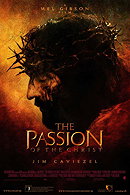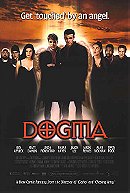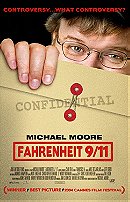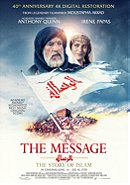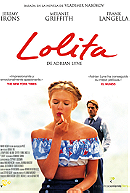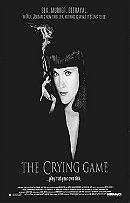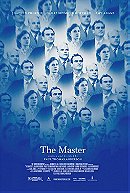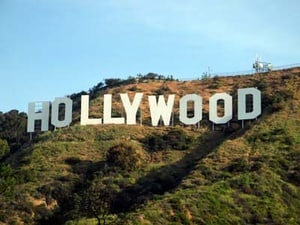Movies Hollywood Was Afraid to Make
Sort by:
Showing 8 items
Decade:
Rating:
List Type:

When Barbara Hershey slipped director Martin Scorsese a copy of Nikos Kazantakis’ controversial novel The Last Temptation of Christ on the set of their early film Boxcar Bertha, neither of them could have anticipated the sort of trouble she was starting. Scorsese, a devout Catholic and fan from boyhood of biblical epics, fell in love with the book and made it his passion project. He spent years trying to get it made, and the picture was green-lit by Paramount in 1983, with Aidan Quinn cast in the title role. But when religious groups got wind of the film and the letters started pouring in, the studio got nervous; they put the project in turnaround and had cancelled it by year’s end. Scorsese, crushed, quickly poured his energy into the fast, low-budget After Hours, but he couldn’t get Last Temptation out of his head, and when he had a certified box-office hit with The Color of Money in 1987, he decided to cash in on that success by taking another shot at Last Temptation. This time Universal cautiously stepped up, and Scorsese shot the film in Morocco for the relatively low budget of $7 million. Paramount’s fears were borne out by the film’s eventual reception: before it had even been released (or seen by anyone not involved), the film was targeted by Christian fundamentalists, who organized protests at Universal’s headquarters and at early screenings, scaring off theater chains from running it (and, later, Blockbuster stores from carrying it and cable companies from showing it). French Christian fundamentalists even fire-bombed a screening in Paris with Molotov cocktails, injuring 13 people.

Last Temptation was proof positive that film versions of the Christ story were a fuse easily lit, so it’s not surprising that every studio Mel Gibson approached with his Christ project took a pass. It was his first time directing since winning the Oscar for Braveheart, but the studios worried not only about the subject matter, but Gibson’s insistence that he would shoot the film in Aramaic and Latin — with no subtitles (he figured the story was well-known enough that the visuals would tell the tale). Gibson ended up backing off of that idea, but he still had to finance the $30 million project himself via his Icon Productions shingle — though he was the big winner financially, since the picture grossed over $600 million worldwide. It still generated plenty of controversy, from questions of historical and biblical accuracy to charges of anti-Semitism (which Gibson did little to quell when he had a couple too many and went for a spin two years later).
SFG¿mystic's rating:


Dogma (1999)

Kevin Smith’s feature debut, Clerks, ended with a promise that “Jay and Silent Bob will return in Dogma,” but that promise took a while to deliver, and not just because the young filmmaker had to work his way up to the film’s big cast and extensive special effects. Though steeped in the writer/director’s lifelong Catholic faith, the nose-thumbing comedy (which included a black thirteenth apostle, a last relative of Christ who works at an abortion clinic, and a God who takes human form to play skee-ball on the Jersey Shore) quickly earned the ire of Catholic groups, resulting in protests, letter-writing campaigns, and even a couple of death threats. The controversy was serious enough to make the nervous suits at Disney, the parent company of Dogma’s production entity Miramax, drop the film; Miramax’s founders and chairmen, Bob and Harvey Weinstein, complied, but then bought the film themselves and sold it to Lionsgate for distribution.
Fahrenheit 9/11 (2004)

Dogma wouldn’t mark the last time Miramax and Disney parted ways over one of the subsidiary’s releases. Michael Moore’s 2004 anti-Bush op-ed doc was to have been his second release by Miramax, which had put out his 1997 film The Big One. But Disney CEO Michael Eisner ordered the Weinsteins to pull out of the project. Miramax stayed in, and while accusations flew back and forth in the months that followed, Disney ultimately refused to distribute the film, and the Weinsteins again went shopping for a distributor. They formed a one-off entity called the Fellowship Adventure Group, which joined with IFC Films and their old Dogma partners Lionsgate to release the film in summer of 2004 — when it grossed over $200 million and became the highest-grossing documentary of all time.

Producer/director Moustapha Akkad tried to use the connections he’d forged in Hollywood as a producer for CBS and consultant for director Sam Peckinpah to get financing for his film version of the life and times of the prophet Mohammad, but it was an even harder sell than a Christ movie, and the project was eventually financed by international sources (including Muammar al-Gaddafi). The potential trouble with the film was easy to pin down: the Muslim faith forbids depictions of its title character. Though Akkad did not violate this tenet — he used light, music, and subjective camera to represent Mohammad — a Muslim extremist group took hostages in three Washington DC buildings in March 1977, demanding that the film be suppressed. It never recovered from that bad publicity, and Akkad ended up going in a much more commercial direction to finance his next feature, Lion of the Desert: he went into the lucrative business of horror movies, exec-producing the wildly successful Halloween (and its many sequels).
Lolita (1997)

Vladimir Nabokov’s scandalous novel about a middle-aged man’s affair with a teenage girl made film executives expectedly skittish when Stanley Kubrick directed its first film adaptation in 1962, and to appease them, Kubrick upped the title character’s age and left much of the scandalous content out of the frame. But director Adrian Lyne had no easier time with his 1997 film version; the existence of the R rating allowed him to make a more faithful adaptation, but his $62 million independent production spent something like a year searching for distribution. It ultimately played in Europe and for one week in Los Angeles before premiering on Showtime in 1998.
The Crying Game (1993)

Irish filmmaker Neil Jordan found himself in Hollywood demand after his low-budget Mona Lisa became an international success in 1986, but his studio follow-ups High Spirits and We’re No Angels didn’t exactly set the world on fire. That could have been why he couldn’t get studio financing for The Crying Game, which he wrote and planned to direct; they were also reportedly concerned that audiences would be turned off by the film’s big plot twist, which contained a bit more sexual ambiguity than most. Jordan ended up making the film independently, scraping together funding and barely getting the picture made. But Miramax (then in its pre-Disney period) snatched it up and made it an arthouse smash — partially by playing up the very plot twist that had put off other studios.
The Master (2012)

Paul Thomas Anderson started working on his script about a postwar spiritual movement in 2009, with his frequent collaborator Phillip Seymour Hoffman in mind from the beginning as the story’s Hubbard-like center. He set the project up at Universal, but the studio passed on the project, as did the Weinstein Company. The official explanation was that the $35 million budget was too risky for the high-minded and potentially audience-alienating picture, but everyone knew what was really up: studios didn’t want to go pissing off the many Scientology boosters in Hollywood — such as John Travolta, Elisabeth Moss, Jason Lee, and Tom Cruise, who co-starred in Anderson’s Magnolia. The project was all but kaput until 25-year-old Megan Ellison (daughter of Oracle chief exec Lawrence J. Ellison) stepped in to provide funds for the production via her fledgling Annapurna Pictures company. The Weinstein Company ultimately committed to distribute the picture, which played Venice and Toronto before its theatrical release Friday — with its stars insisting in promotional interviews that it’s not really about Scientology.
 Login
Login
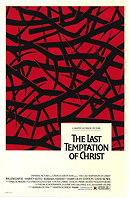
 935
935
 7.2
7.2
 7.5
7.5
